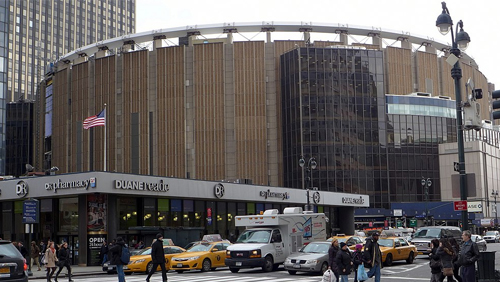A bill introduced by New York Assemblyman Gary Pretlow last Thursday hopes to expand the state’s gambling opportunities. It would allow digital gambling, as well as permit racetracks and other commercial facilities to join forces with New York’s four casinos to launch in-person sports betting through kiosks. If approved, sports gambling could soon make its way to venues such as Madison Square Garden and Yankee Stadium.
 Sports gambling was first legalized in the Empire State in 2013 after voters approved an amendment to the state’s constitution that allowed commercial casinos. Four casinos were subsequently launched and the idea of offerings sportsbooks has always been on the back of everyone’s mind. However, it wasn’t until the U.S. Supreme Court reversed PASPA last May that New York was able to finally move forward.
Sports gambling was first legalized in the Empire State in 2013 after voters approved an amendment to the state’s constitution that allowed commercial casinos. Four casinos were subsequently launched and the idea of offerings sportsbooks has always been on the back of everyone’s mind. However, it wasn’t until the U.S. Supreme Court reversed PASPA last May that New York was able to finally move forward.
After PASPA was eliminated, the New York Gaming Commission drafted regulations this past January that would authorize sports wagers at the casinos. Not much has moved since then, as the state’s governor, Andrew Cuomo, feels that legalization of sports gambling would require another constitutional amendment.
In speaking with Legal Sports Report recently, Pretlow stated, “Maybe [Cuomo] won’t veto it. Maybe we can override his veto. A lot of things can happen. But if we don’t try something, it’s never going to happen.” He reiterated that position during a discussion held at the Cardozo School of Law last Friday, asserting, “I have it on good authority that the governor, who has heretofore said it was unconstitutional, has backed away from that. We’ve not heard the governor say anything about it being unconstitutional in the past few days.”
However, that assertion may not be accurate. When contacted by Gambling Compliance, the governor’s office “categorically denied” that Cuomo had changed his mind.
Pretlow has been behind most of the gambling-related bills to reach lawmakers in the past several months. He has been pushing for legalized online poker and sports gambling, alongside Senator Joseph Addabbo. Between the two, they are leading a fierce battle to introduce the activities in an effort, as is the case with most states, to capitalize on the billion-dollar markets and help boost their state’s revenue.